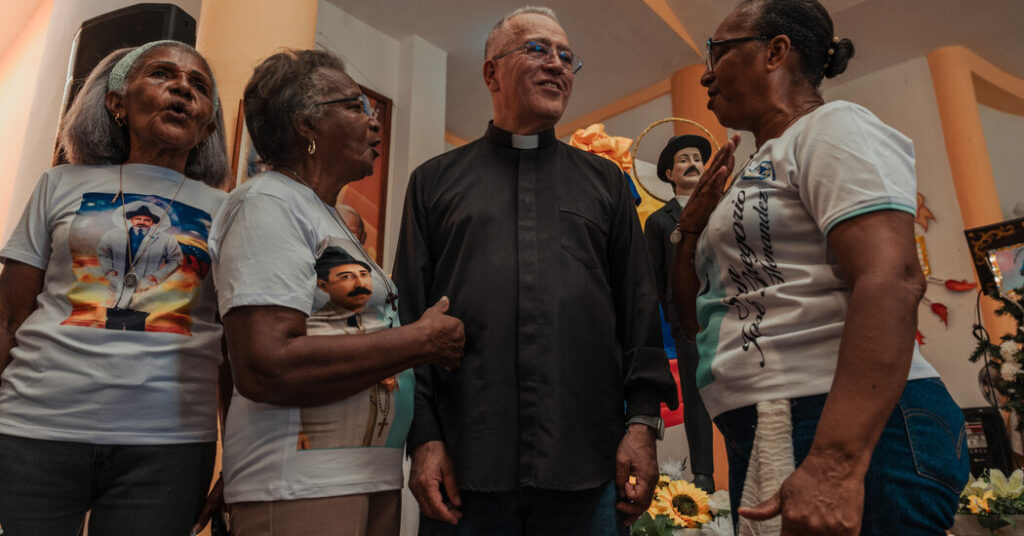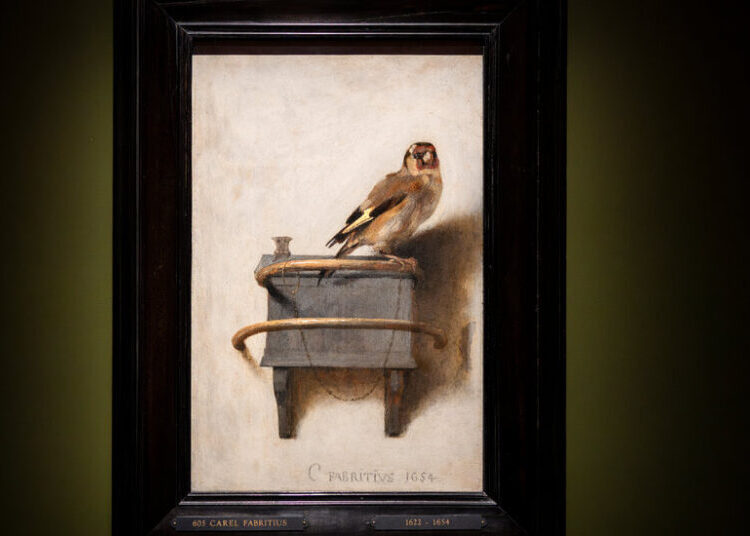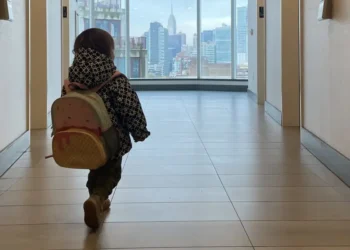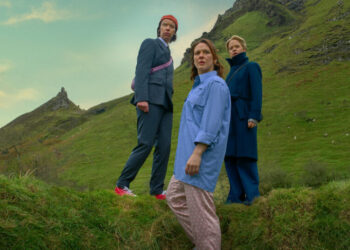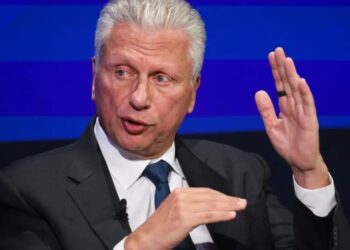The Rev. Numa Molina wields unusual power for a parish priest in a working-class commuter town near the Caribbean coast.
The Venezuelan Jesuit is on a first-name basis with the country’s president, Nicolás Maduro. He conducts private Masses for Mr. Maduro’s family and advises his son, a ruling party lawmaker, on his outreach to the Roman Catholic Church, Venezuela’s dominant faith.
Father Molina, 68, regularly visits the Vatican, where he once celebrated a private Mass with the late Pope Francis and served as Mr. Maduro’s messenger.
During his workweek, Father Molina traverses Venezuela with armed bodyguards in a white pickup truck with tinted windows, hosts a weekly television program and provides aid to poor Venezuelans.
Father Molina was an early backer of Mr. Maduro’s predecessor, Hugo Chávez, who won a landslide victory in 1998 on a promise of redistributing Venezuela’s oil wealth. His support of the country’s ostensibly socialist government have led detractors to label him the “Communist Priest.”
His declared embrace of the government has pitted him against the conservative leadership of Venezuela’s Catholic Church, arguably the last national institution critical of Mr. Maduro’s autocratic rule.
Even that criticism is waning. Father Molina is the face of a slow but steady rapprochement between church and state, underscoring the scale of Venezuela’s transformation over the past quarter-century.
President Trump’s threat to attack Venezuela to take on what the United States claims is a drug cartel run by Mr. Maduro is testing the depths of the Venezuelan president’s grip.
Venezuela’s dominant opposition movement argues that the nation would gladly throw off Mr. Maduro’s yoke during a military intervention. They point to Mr. Maduro’s landslide defeat in last year’s elections, which he ignored to fraudulently hold on to power.
Maduro officials and supporters, by contrast, present the government as a guarantor of stability, claiming that the opposition cannot run a state shaped in Mr. Chávez’s image.
“The opposition wants war, they want us to be invaded,” Father Molina said in an interview last month. “How is it possible for a Venezuelan to want something like that?” he added.
He spoke from his small church compound in Ciudad Caribia, a collection of brick public housing blocks perched on barren hills between Caracas, the capital, and the coast.
Church leaders opposed to Mr. Maduro still dominate the Venezuelan Bishops’ Conference, the church’s national ruling body.
The bishops have criticized human rights abuses under Mr. Chávez and then Mr. Maduro. They have continued to speak up as Mr. Maduro gradually repressed or co-opted other spheres of Venezuelan public life — the political parties, the media, big business and universities.
“We are living in a morally unacceptable situation,” Venezuelan Cardinal Baltazar Porras said in a recent speech in Rome. The government’s disregard for democracy “hinders peaceful coexistence,” he added.
In the past, some Venezuelan clergymen have gone beyond criticism. In 2002, Cardinal Ignacio Velasco signed a decree attempting to legitimize a short-lived coup against Mr. Chávez. The government has used that episode to paint Church leaders as conspirators.
More recently, the Venezuelan bishops have been silent on the Trump administration’s attacks on boats off Venezuela and Colombia, which have killed more than 80 people, in contrast to a forceful stance taken by Catholic bishops representing Caribbean islands.
Throughout his career Father Molina has accused Venezuelan bishops and cardinals of being out of touch with Venezuela’s poor. “They are religious officials, not pastors,” he said in the interview.
He has continued defending the government, even as it lost the support of the poor he claims to represent. Mr. Maduro set off an extraordinary economic collapse, scrapped most social programs and carried out extrajudicial killings in impoverished neighborhoods.
The ideological split inside Venezuela’s Catholic Church is an aftershock of the Cold War. It was a period when many young priests in Latin America, inspired by the gospel’s message of social justice, supported Marxist rebels and accused conservative bishops of legitimizing right-wing dictators.
But after revolutions won power in countries like Nicaragua and Cuba and morphed into new dictatorships, many of those priests struggled to reconcile their progressive beliefs with political realities.
In private, some Venezuelan priests say Father Molina has failed to see that political reality at home. His concern for the material well-being of his congregation, they say, had led him to become too deeply enmeshed in politics and make moral compromises with a government accused of drug-trafficking and torture.
Father Molina claims time is working against the conservative old guard of Venezuela’s Catholic Church. Cardinal Porras is 81, and Venezuela’s other cardinal, Diego Padrón, is 86.
“There’s a new generation of bishops who view the situation differently,” Father Molina said.
The head of the Venezuelan Bishops Conference, Archbishop Jesús González de Zárate, in a brief interview last month, acknowledged tensions with the government, and said the Church would continue supporting all Venezuelans, regardless of their political views.
The Conference did not respond to a list of detailed questions.
Some church institutions are already starting to accommodate Mr. Maduro.
Venezuela’s main Catholic university, the Andres Bello Catholic University in Caracas, had been a bastion of student activism and academic independence for decades.
That started changing after the Rev. Arturo Peraza, a friend of Father Molina, became rector in 2023. The university has removed Cardinal Porras from its governing board, pressured outspoken professors to resign and ended a program that offered free courses on democracy.
The university’s campus was once covered in pro-democracy placards; it now hosts state-owned companies for networking events. Father Peraza declined to comment.
Last year, the university welcomed a prominent new student: Nicolás Maduro Guerra, 35, the president’s son and Father Molina’s confidant, who is studying for a master’s degree in applied economics.
Mr. Maduro Guerra, in an interview last year, said that as the ruling party’s head of religious affairs he met dozens of Venezuelan bishops to resolve issues related to religious schools, visas for members of religious orders and Catholic nonprofits.
“We coincide in many things,” he said. “We both understand that Venezuela is not the same as it was 20 years ago.”
Mr. Maduro’s inroads with the Catholic Church could help him amid a growing military threat from the United States.
Echoing his pacifist stance on other conflicts, Pope Leo XIV has called for peaceful talks between Mr. Maduro and Mr. Trump.
Father Molina said he had not met Pope Leo, who assumed office in August, but described warm relations with Francis, who was an Argentine Jesuit. He said he had shared lodgings with Pope Francis’s nephew, the Rev. José Luis Narvaja, at a Roman seminary. On later visits to the Vatican, Father Molina said, he spoke at length with Pope Francis about Venezuelan politics.
More than 60 percent of Venezuelans identify as Catholic, according to a recent poll, which found that the church remains one of the most trusted institutions in a polarized country.
Venezuela’s main opposition leader, María Corina Machado, is a self-professed devout Catholic who has extensively used Christian imagery in rallies.
Ms. Machado and Mr. Maduro have both tried scoring political points from the canonization in October of Venezuela’s first saints — a medic, Dr. José Gregorio Hernández, and a nun, Mother Carmen Rendiles.
Mr. Maduro’s government initially planned to celebrate the canonization at a Caracas baseball stadium but organizers scrapped the event at the last minute, citing excessive demand. Political analysts attributed the cancellation to the government’s fear that a mass gathering could spark protest.
Father Molina was born to a family of subsistence farmers in the Andean foothills. He said his mother died in his arms from a childbirth complication when he was 11.
The trauma, he said, made him question the shortage of rural medical services, seeding his socialist worldview.
Father Molina gained Mr. Chávez’s attention after hosting radio programs that explored the connection between socialist and Christian values. In 2009, Father Molina said Mr. Chávez invited him to officiate a ceremonial Mass; the two bonded.
“I became the Comandante’s spiritual director,” he said.
Mr. Chávez, who died from cancer in 2013, introduced Father Molina to Mr. Maduro, his foreign minister and eventual successor. Mr. Maduro, a former bus driver and labor unionist, helped Father Molina renovate a chapel where he worked. The two men also struck up a friendship.
“Maduro has an Everyman’s spirituality,” Father Molina said, adding that the president calls him regularly seeking spiritual advice.
On a recent Sunday morning, several people lined up outside Father Molina’s church in Ciudad Caribia, seeking help paying for surgeries or starting small businesses.
Father Molina said he had provided financial help to more than 3,000 people and that canteens he oversees in Ciudad Caribia provide 1,400 free daily lunches. He said he had also secured a new hospital for the neighborhood.
“Religion aside, he is a figure of authority,” said Merwin Sánchez, a ruling party member of Ciudad Caribia’s community council, referring to Father Molina. “He is a fundamental part of the presidency of the republic.”
Tibisay Romero and Mariana Martínez contributed reporting.
Anatoly Kurmanaev covers Russia and its transformation following the invasion of Ukraine.
The post The Priest Blessing Venezuela’s Strongman, Dividing the Church appeared first on New York Times.
